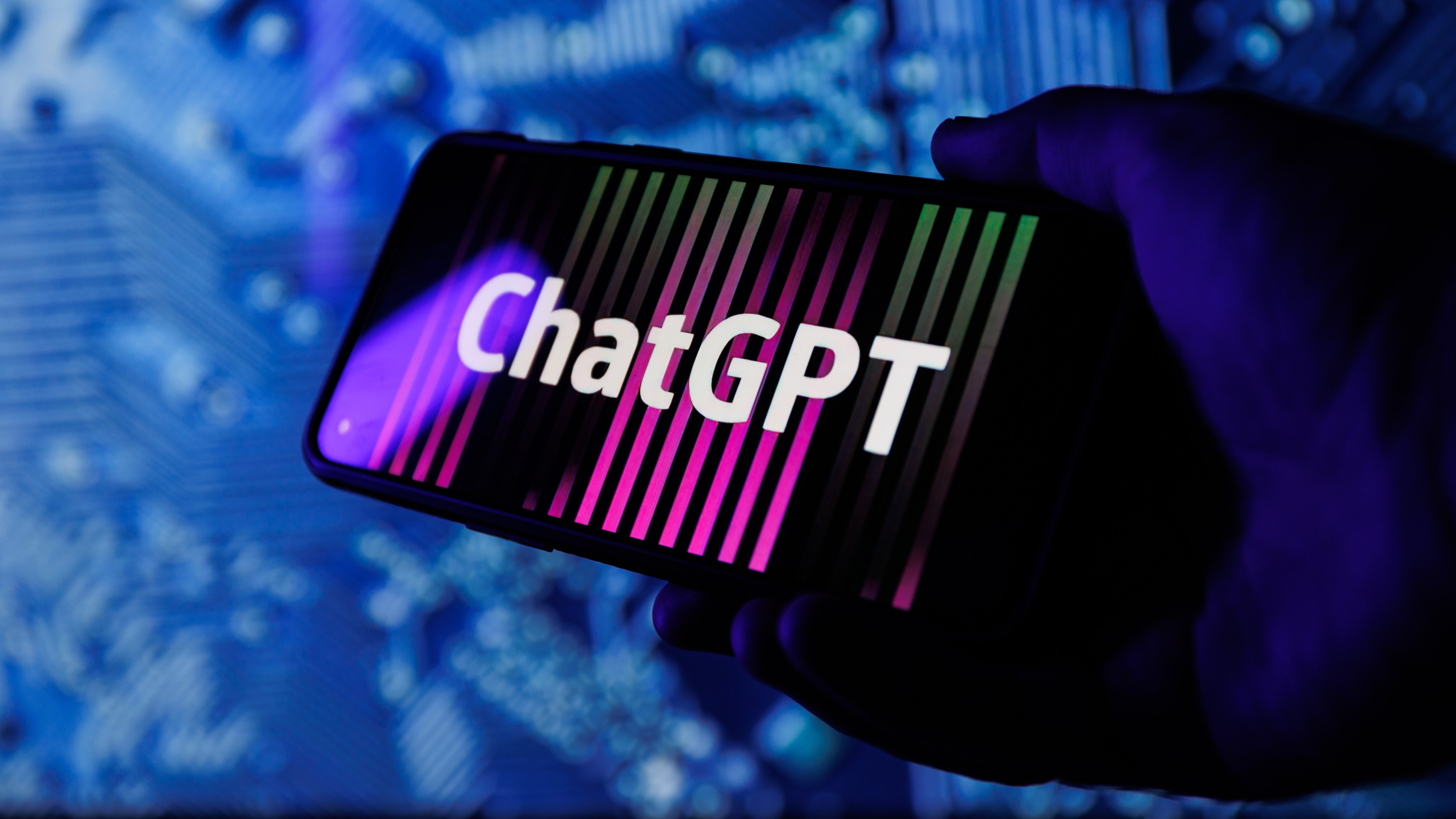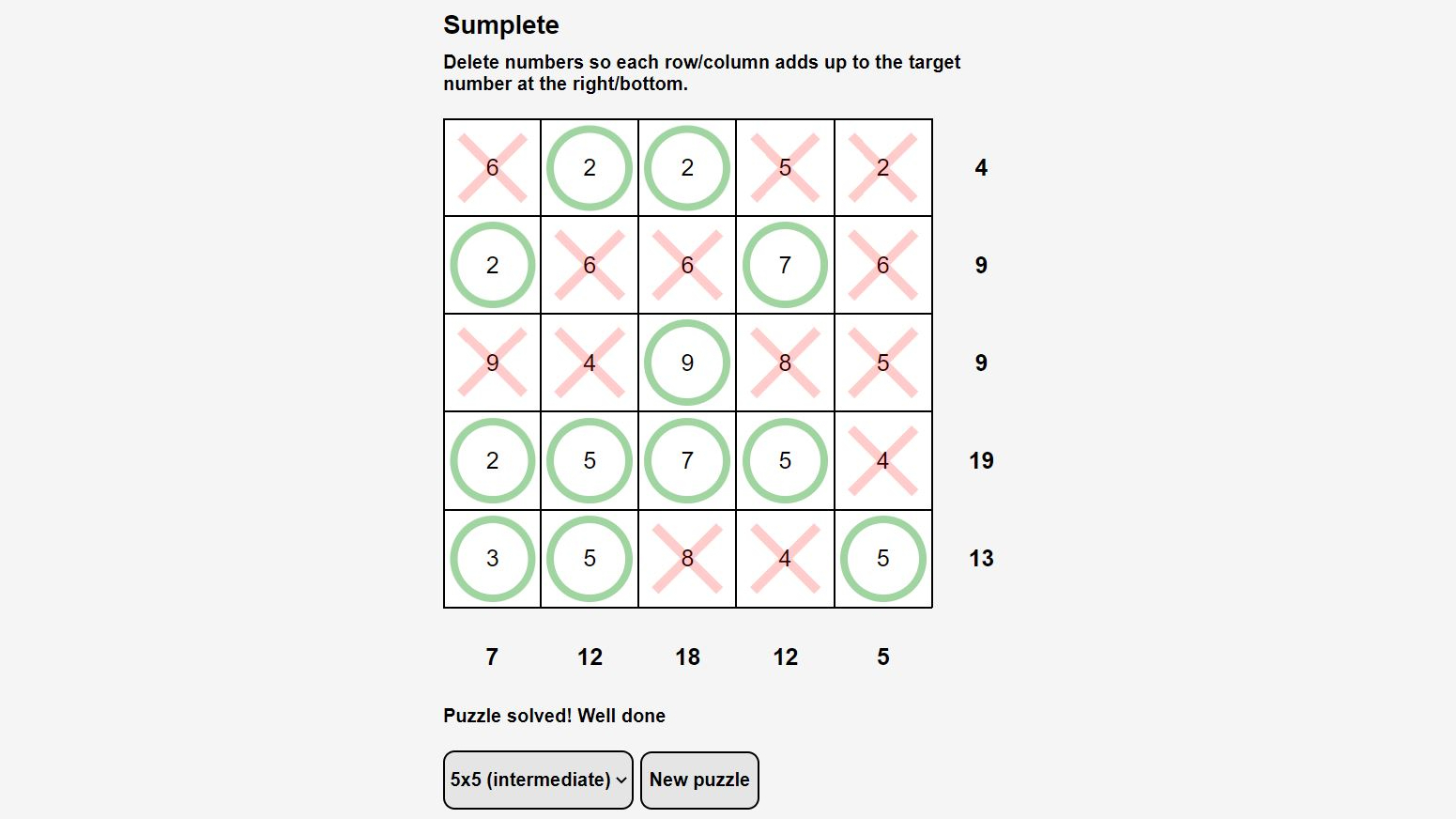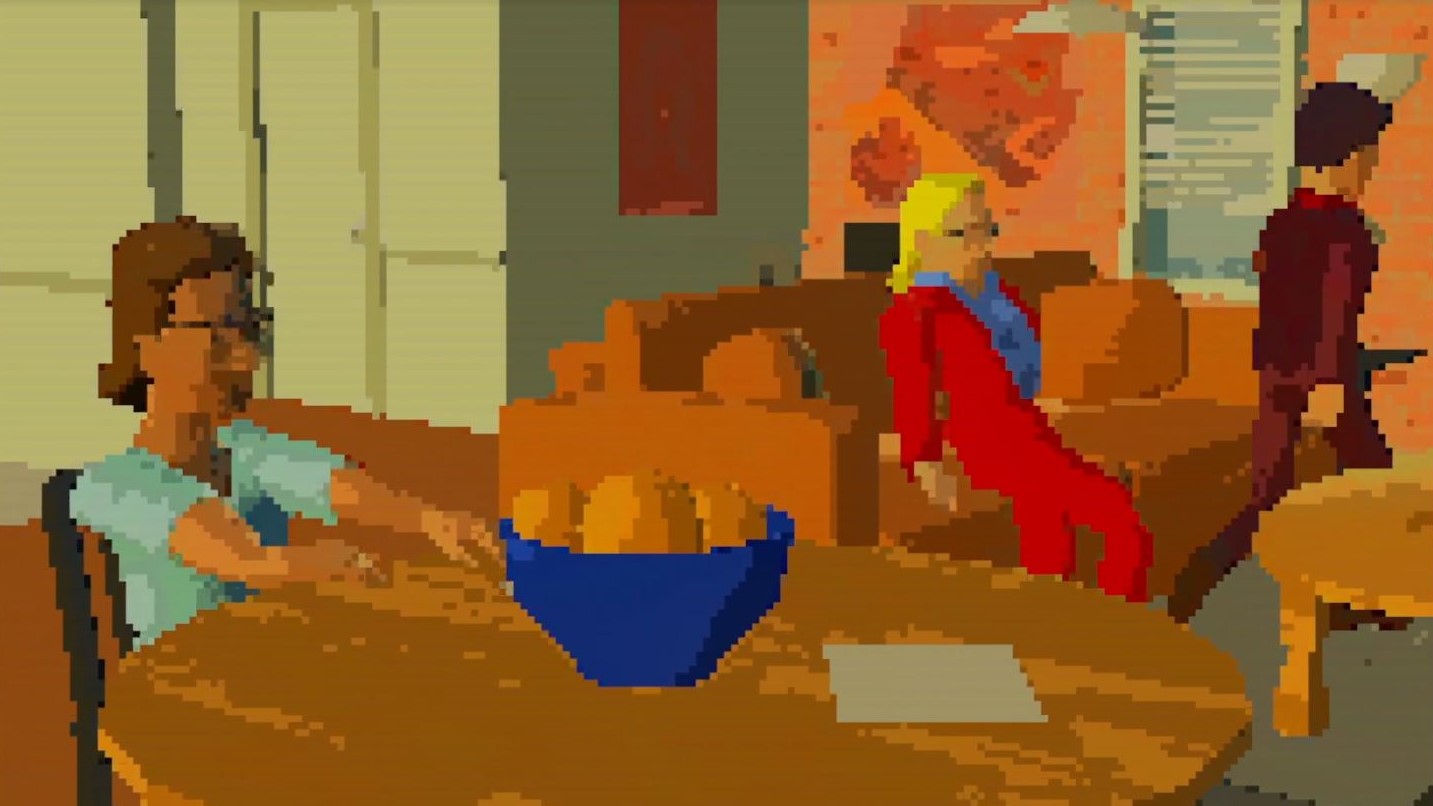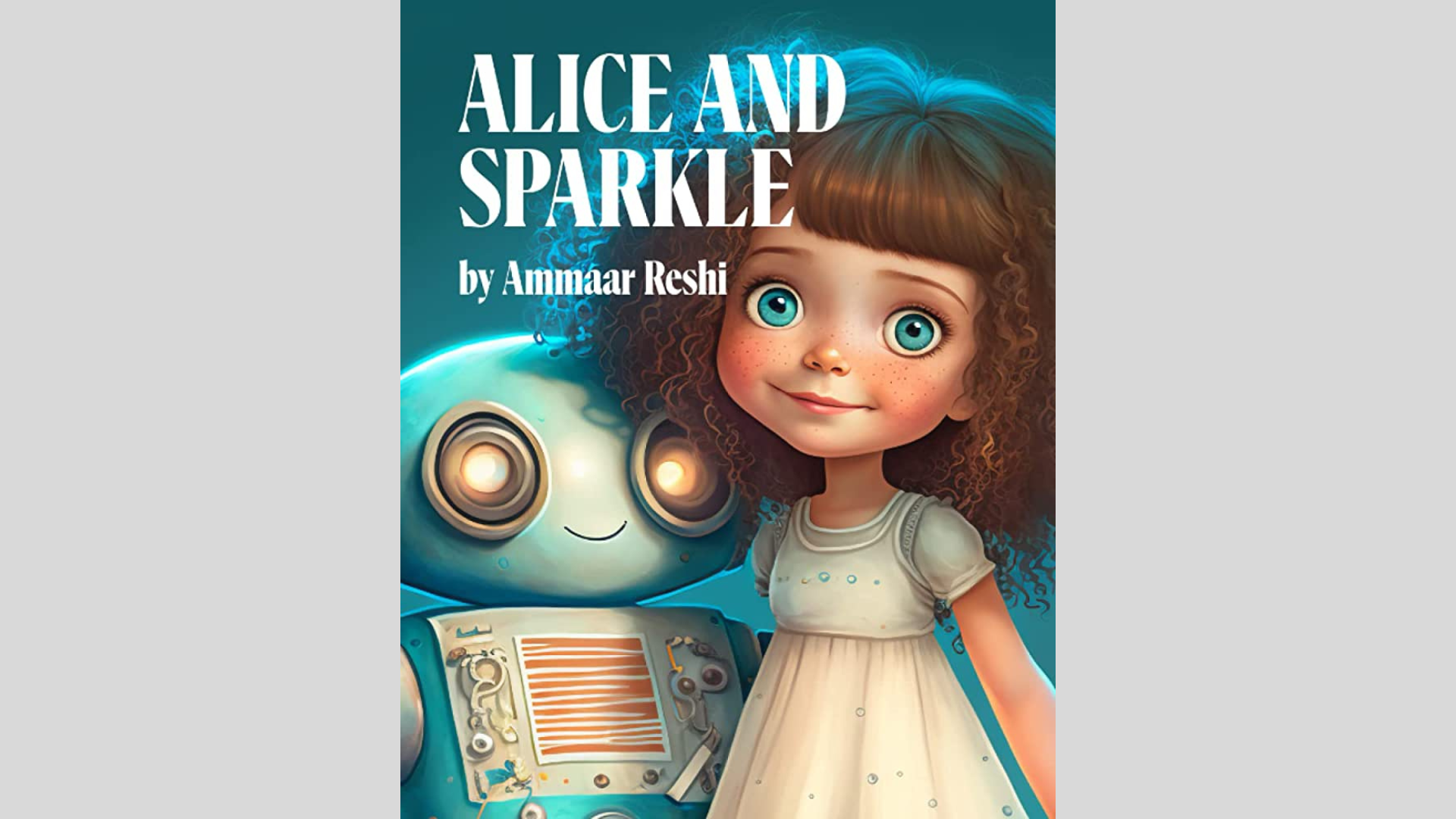ChatGPT examples: 7 ways AI is being used as an real life cheat code
Examples of ChatGPT wreaking havoc, and lending a hand

Since its public launch many of us have been using AI bots to help us to produce a variety of things from portraits to vacation plans. Here you’ll find a collection of ChatGPT examples that show you what this tool can be used to do.
Just don’t expect much from this list to utterly blow your mind. ChatGPT-4 may have now launched, bringing significant upgrades to OpenAI’s creation’s abilities, but the AI is still in its relative infancy. As such it's prone to making mistakes. It’s also not great at being original – with many examples of ChatGPT’s work merely being imitations of existing art (which makes sense when you consider how large language models work).
1. Making games – Sumplete
One of the best projects we’ve seen someone create using ChatGPT is a whole game that you can actually play online right now. It’s called Sumplete and it’s a sort of hybrid of sudoku and picross.
Sumplete has you eliminate numbers in a grid so that the rows and columns add up to (or sum to) target figures. At lower levels, the grid is quite small and the puzzles aren’t too challenging, but at the highest Master level you won’t just have to deal with a nine-by-nine grid but one that’s full of positive and negative numbers – which makes finding the correct answer a proper puzzle.

Plus, this Wordle rival is particularly interesting as it was created in “just a few hours by ChatGPT” – with some help from human prompter and programmer Daniel Tait. Not only did the chatbot pitch the idea, but it helped to code Sumplete as well. That said, while Tait plays down his involvement based on our own efforts trying to make a game in ChatGPT it likely involved a lot of talent on his part – to not only understand the code (and what needed fixing) but also how to phrase prompts to get the right answer.
So while you can have a go at making a game in ChatGPT yourself, don’t expect to make a Wordle-rival like Sumplete on your first try – or even on your 100th.
2. Writing letters – get parking fines reduced
If parking companies are going to send us automated letters telling us we have to pay a fine, why shouldn’t we leverage AI to send automated arguments back to help us try and reduce how much we’re charged – or even get out of paying completely?
Sign up for breaking news, reviews, opinion, top tech deals, and more.
That’s the thought that’s crossed several people’s minds, with them turning to ChatGPT to help them challenge fines and save money. Millie Houlton, a student in the UK, reportedly used ChatGPT to send a letter to York City Council which convinced them to withdraw a fine of £60 (around $75 / AU$112), and Shaun Bosley, a UK motorist, used ChatGPT help him reduce a fine for stopping at Gatwick Airport from £100 to £15 (around $125 to $19 / AU$186 to AU$28).
Copying this ChatGPT example won’t always help you save money – especially if you don’t double-check that its writing hasn't strayed into gibberish – but considering how quick and easy it is to get the chatbot to produce the letter for you it’s probably worth giving it a try. Worst case you have to pay the fine anyway, but at least you didn’t waste much of your own time fighting it.
3. Writing a TV show – Nothing, Forever
ChatGPT can be a pretty helpful writing buddy by helping to pitch story prompts, edit your work and even tell you the tone of your writing. But ChatGPT can take things one step further by just doing the writing for you.
BBC Click presenter, Lara Lewington used ChatGPT to help pen a documentary where she outlines how AI could transform our daily lives – and the issues AI has that are holding it back. While at the other end of the spectrum, you have ‘TV shows’ like Nothing, Forever, an AI-written parody of Seinfeld.

Nothing, Forever serves as a good example of why you might want to think twice about relying on an AI writer. While the show’s segments and jokes may mimic Seinfeld's humor the often nonsense combination of words and inconsistent setups and punchlines help the show avoid being funny and instead see it stray into absurd territory. Additionally, the show has already been banned on Twitch once after it produced a segment that was transphobic and homophobic – an accident the creators apologized for and blamed on them briefly switching to a ChatGPT alternative to be its writer after ChatGPT suffered from outages. AI can’t think critically and their writing will be easily manipulated by any biases in their data set, so make sure you carefully vet and edit anything an AI produces before you release it into the world.
4. Finding obscure movie references
There are reasons for and against using AI chatbots as search engines, but one advantage they do have is that they can have a much better go at piecing together partial information to find what you’re after. This can be super helpful if you remember snippets of a film scene, the odd line of a song, or some other slightly obscure but specific detail that isn’t the name of the thing you want to recall.
Case in point, if you use Google to search for “What's the film in which the main character trains with a small green alien in a swamp” the first film recommendation hidden among the mish-mash of results is Labou – a 2008 flick about kids looking for treasure in the Louisiana bayou. There’s a swamp sure, and weird creatures but that’s not the film I’m thinking of.
Posing the same question to ChatGPT instead gets it to predict the film I’m thinking of is Star Wars: Episode V The Empire Strikes Back – which it was. That said we did have to have a couple of goes and make the prompt more specific – when we originally asked ChatGPT for a “film in which the main character is trained by an alien” it pitched Lilo & Stitch the 2002 animated Disney film.
5. Pumping out book after book
ChatGPT isn’t just versed in the world of film, it can also produce books too – and the Kindle store is already being flooded with hundreds of books produced by AI. This influx of robot authors is partly due to Amazon’s simple self-publishing service, which has yet to address the use of AI or ChatGPT in its publishing guidelines.
Creating books this way may seem harmless – and a helpful way to finally get that idea that’s been floating around in your head into a finished product – but AI books are already facing a fair few controversies.

Firstly there’s the issue of ownership. Some would argue that the prompter owns the book, others would say it’s OpenAI as it created ChatGPT, and a third group argues that no one owns the book – citing a 2016 ruling that decided no one owns the selfie taken by Naruto the crested macaque, which decided non-human made works immediately enter the public domain. Additionally, the AI isn’t really creating anything just using the prompt and borrowing ideas from similar works it's been trained on – so a fourth group might argue the AI-made book belongs to the authors ChatGPT copied.
This ChatGPT example also runs up against another issue: AI books typically aren’t that good. Unless a human goes over it to fix any errors the novel will likely be full of nonsense and cliches that can make for a rather lackluster read.
6. Writing song lyrics – robot Nick Cave
Another writing example, you can also use ChatGPT to help you pen songs inspired by your favorite musicians. Though, as with the above examples the results are mixed at best. Case in point, one person asked ChatGPT to generate a new song in the style of Nick Cave, and in the human Nick Cage’s opinion it “sucks,” calling it a “grotesque mockery.”
The song includes lyrics such as “I’ve got the blood of angels, on my hands, I’ve got the fire of hell, in my eyes, I’m the king of the abyss, I’m the ruler of the dark, I’m the one that they fear, in the shadows they hark.” The song definitely follows Cave’s use of typically dark religious imagery, though, in Cave’s eyes, it lacks the “authentic human experience” that fuels good creative endeavors.
7. Plan your dream vacation – book a trip to Paris
ChatGPT isn’t just useful for writing, thanks to its list of compatible plugins you can also use it to perform tasks like planning your dream vacation.
We had a try at using Expedia’s ChatGPT integration to organize a trip to Paris, but you can try very similar features in ChatGPT itself. Using the Expedia or Kayak plugins you can get holiday destination ideas, find flights that suit your needs, source potential hotel options, and even find activities to do while you’re away. The tool’s pretty neat, and we wre pretty bummed out when we realized we weren’t actually going on the fake trip we planned using the tool.

Though if you’re relying on this ChatGPT example to actually book a trip away, you could also try out the Speak plugin which is described as an “AI-powered language tutor.” That way when you arrive at your destination you can try your best to speak the local language, or at least know some basic phrases to help you get by when you can’t access an online tool like Google Translate.
8. Help with your love life
If you're struggling with your love life we wouldn't recommend turning to ChatGPT for help, but the AI bot can assist you nonetheless. Back in February 2023, we asked ChatGPT to make a Valentine's Day card and poem, and let's just say the results were... horrific.

The poetry wasn't all awful in fairness (its haiku about two trees confessing their love for one another was surprisingly beautiful) but generally, we expect ChatGPT's work would do us more harm than good in the dating world.
What's more, DALL-E's Valentine's Day cards were the stuff of nightmares as you can see in the image above.

Hamish is a Senior Staff Writer for TechRadar and you’ll see his name appearing on articles across nearly every topic on the site from smart home deals to speaker reviews to graphics card news and everything in between. He uses his broad range of knowledge to help explain the latest gadgets and if they’re a must-buy or a fad fueled by hype. Though his specialty is writing about everything going on in the world of virtual reality and augmented reality.